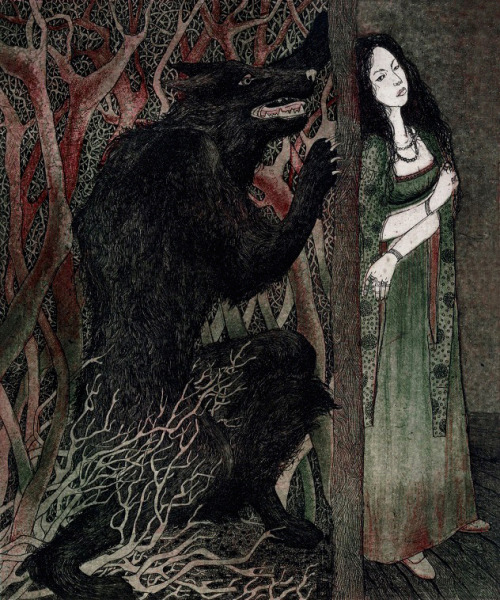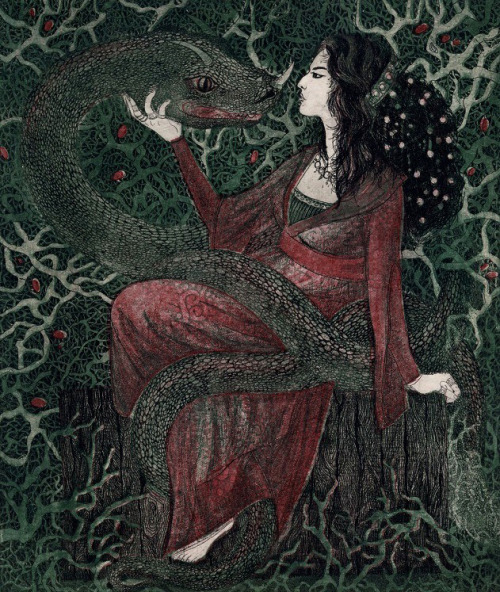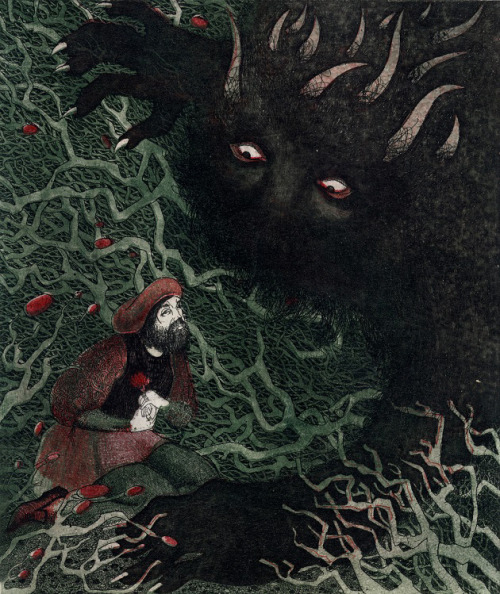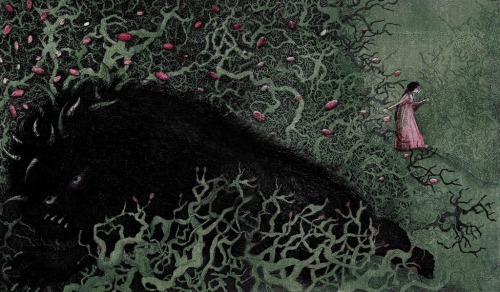Latest Posts by portraitofglue - Page 2

Kazuo Ishiguro - “Dream Techniques”
1. Unwarranted Emotion 2. Unwarranted Relationship 3. Delayed realization (ENTER/EXIT) 4. Odd postures—figurative postures + escaped metaphors 5. Placing 6. Weird Venues 7. Extended, tangential monologues 8. Distorted time frame 9. Unwarranted recognition of place 10. Private enclaves 11. Unwarranted familiarity with situation (or person or place) 12. Characters from foreign contexts 13. Characters continuing under different surfaces 14. Distorted Logistics 15. Transmuting Narrator 16. Partial invisibility (And odd witnessing) 17. Backward projection of Intentions 18. Bleeding with Memory 19. BACKWARD projection of Judgment 20. Restricted Witnessing 21. Tunnel Memory 22. The Dim Torch Narrative Mode 23. Crowds—Unwarranted Uniformity 24. Robert Altman [illegible] 25. (“More than I expected”) Unwarranted Expectation 26. MIXED PERSONALITY
do the silly thing. if you do not do the silly thing time will pass and it will not be the same silly thing it could have been. it will still be silly, and it will still be yours, but it will not be the same. this is both a blessing and a curse, but so is living; and if you do not do it now when will you? who will? it has to be you, it was always meant for you, waiting for you.
“In cyclamen flowers the red of summer combines with the blue of autumn into a pinkish purple, and their fragrance recaptures all the sweetness of the past; but as you inhale it for longer, there is a quite different smell behind it : that of decay and death.”
— Marlen Haushofer, The Wall (tr. by Shaun Whiteside)
ending a story in other languages
kurdish: “my story went to other homes, god bless the mothers and fathers of its listeners” (Çîroka min çû diyaran, rehmet li dê û bavê guhdaran.)
greek: “and they lived well, and we lived better” (και ζήσανε αυτοί καλά και εμείς καλύτερα)
afrikaans: “whistle whistle, the story is done” (fluit fluit, die storie is uit)
goemai: “my tale has finished, (it) has returned to go (and) come home.” (tamtis noe lat / dok ba muaan yi wa)
amharic: “return my story and feed me bread” (ተረቴን መልሱ አፌን በዳቦ አብሱ::)
bengali: “my story ends and the spinach is eaten by the goat” (aamaar kothati furolo; Notey gaachhti murolo) *means something is irreversibly ended because goats eats herbs from the root
norwegian: “snip snap snout, the tale is finished” (snipp snapp snute, så er eventyret ute”
polish: “and i was there [at the wedding] too, and drank mead and wine.” (a ja tam byłem, miód i wino piłem.)
georgian: “disaster there, feast here… bran there, flour here…” (ჭირი – იქა, ლხინი – აქა, ქატო – იქა, ფქვილი – აქა)
hungarian: “this is the end, run away with it” (itt a vége, fuss el véle)
turkish: “lastly, three apples fell from the sky; one for our story’s heroes, one for the person who told their tale, and one for those who listened and promise to share. And with that, they all achieved their hearts’ desires. Let us now step up and settle into their thrones.” (Gökten üç elma düşmüş; biri onların, biri anlatanın, diğeri de dinleyenlerin başına. Onlar ermiş muradına, biz çıkalım kerevetine.)
The development of Lynch's body of work is informed by a realist's optimism that there is an exit from the linguistic labyrinth and that this exit is richly available to us [...] His use of language—and of cinematic vocabulary—suggests that, once we understand that we ourselves have created cultural forms and that they only have the meaning we give them, we are free to understand the forces in the universe that are truly larger than we are and how they connect us to a greater reality.
Martha Nochimson, The Passion of David Lynch

Illustration from What the Moon Saw for Fairy Tales from Hans Cristian Andersen by Dugald Stewart Walker (1914)

Christa Wolf, from “Cassandra: A Novel and Four Essays”

Florence and The Machine, from “Cassandra”
2025
DO IT SCARED
DO IT FOR THE JOURNEY
BECOME UNGOVERNABLE
CHANNEL THE OTHERWORLDLY
WRITE LOVE LETTERS TO YOUR FRIENDS
WORSHIP THE GOD OF LITTLE JOYS
LAUGH WITH YOUR THROAT BARED
TRUST THE SHARPNESS OF YOUR TEETH
DO NOT FORGET TO SCREAM
btw you will miss this in 5 or 10 years. memory will smooth these circumstances down like a river stone, and you will find yourself longing for a shade of light or a moment of this particular innocence. you don't know about what happens next, and one day that will be the most alluring thing of all. don't leave it all for nostalgia. have a nice night now, whatever night it happens to be.
“what’s the odyssey?” girl what ISN’T the odyssey
“nobody is making you do this” i am driven by unnatural forces you will never even begin to comprehend
food from my dreams
an ongoing list
Glenn Miller; an alcoholic drink composed of bourbon, scotch, maraschino cherries and a slip of something literally golden.
Enoki Mushrooms; mushrooms brought in a plastic box-marinated with garlic, spring onion, soy sauce and chilli sauce.
Sushi mix; a combination of Indian food and sushi, shoved into a laptop fitted for that purpose. The entree consisted of a sushi bento box inside the laptop, while the mains-a larger bento box of more varieties (rice, soup, large sushi-all heavily saturated in colours) were outside the laptop in a similar crevice.
Pistachio macarons; macarons with pistachio filling, resemblant of the ones in Coles that I really wanted to try
Ramen rice; a mixture of ramen with traditional Indian rice and curry that I made for a friend.
Buffet course; the first course was this strange baked cream roast chicken in bread and when you opened it and the waitress also poured a little crouton soup. The second one was this beef dish that looked genuinely so extravagant—the beef was carved like a flower petal on top of the rest of the dish which was a mix between a tartare and something cooked with lots of fruits/vegetables and garnishing
[LATEST] Donut Pistachio Tiramisu; Two or three Krispy Creme donuts that were used as the lady fingers of a tiramisu. Pistachio crumble. The cream that used heavy cream, sugar that melted into cream and vanilla extract. Coffee powder. And I left TeeVee snacks on the counter but never used it.


What Evil Means to Us, by C. Fred Alford

a rambling excerpt from my docs; a hopeful reminder to me that there is so much more of the world to consume, films to watch and music to listen to while walking, stories to read on the train. it also serves as a reminder to appreciate the small things in life, however much mundane because in reality, that is what i seem to be living for.
han kang, winner of the nobel prize for literature, refused to celebrate because of the wars: 'With the war intensifying and people being carried out dead every day, how can we have a celebration or a press conference?'
toshiyuki mimaki, co-chair of Hidankyo, the A-bomb survivors’ group that won nobel peace prize, said: 'Gaza right now is like Japan 80 years ago' and had thought the prize would go to those working hard in Gaza, not to Hidankyo.
arundhati roy, winning the PEN pinter prize, in her speech at the british library: "Not all the power and money, not all the weapons and propaganda on earth can any longer hide the wound that is Palestine."
alaa abdel fattah, who was named PEN Writer of Courage by Roy, is in egyptian prison. but in 2021 his mother brought his letters from prison on gaza: Free Jerusalem; tranquil Alexandria, Bride of the Sea; Beirut, the Sheltering Tent — the symbols seem more real than the cities. But Gaza and Cairo are both cities that resist romanticization and so elude song. No one sings to Cairo, but it is the capital of the Arabs. No one sings to Gaza either, but it remains the indisputable capital of Palestine. Both are always present in a crisis. [...]
Do I have the right to dream of escaping to Gaza? Do I have the right to dream of a road to Cairo that passes through Gaza? Does a captive have the right to ask for help from the besieged? I know that these questions show how ancient I am, but I’m an Arab and Palestine’s always on my mind. And, in my defense, I’ll say that I refused to be humiliated in my country, and I never lowered my banners, and it should count that I stood in the face of my oppressors: an orphan, naked and barefoot, and my solace is that the tragedy I’m living is but my share of yours. I call out to you: you are always on my mind."
these are the things the brave and intellectual people of our time are saying. it is possible to be principled. it is always possible to be principled. it is also possible to be less than that—look around and you'll see it in all the writers and artists of our time who are abdicating their roles within humanity. we're living in a time of perfect clarity.
![[ID: only consumption can end consumption / I think you knew this I think you chose to be / devoured]](https://64.media.tumblr.com/23594d5b44f76923cb74e7e566e5b8a4/ef5160f65d571847-13/s500x750/5f8c3d8e9d823beff36c0e64f0a7d23e117e04f6.jpg)
Blessed Are the Peacemakers, Brionne Janae
not sure if anyone is interested in this but here is a list of the most joyfully vital poems I know :)
You're the Top by Ellen Bass
Grand Fugue by Peter E. Murphy
Our Beautiful Life When It's Filled with Shrieks by Christopher Citro
Everything Is Waiting For You by David Whyte
Lawrence Ferlinghetti Is Alive! by Emily Sernaker
Instructions for Assembling the Miracle by Peter Cooley
Barton Springs by Tony Hoagland
Footnote to Howl by Allen Ginsberg
Song of the Open Road by Walt Whitman
Tomorrow, No, Tomorrower by Bradley Trumpfheller
At Last the New Arriving by Gabrielle Calvocoressi
To a Self-Proclaimed Manic Depressive Ex-Stripper Poet, After a Reading by Jeannine Hall Gailey
In the Presence of Absence by Richard Widerkehr
Chillary Clinton Said 'We Have to Bring Them to Heal' by Cortney Lamar Charleston
Midsummer by Charles Simic
Today by Frank O'Hara
Naturally by Stephen Dunn
Life is Slightly Different Than You Think It Is by Arthur Vogelsang
Ode to My Husband, Who Brings the Music by Zeina Hashem Beck
The Imaginal Stage by D.A. Powell
Lucky Life by Gerald Stern
Beginner's Lesson by Malcolm Alexander
Presidential Poetry Briefing by Albert Haley
A Poem for Uncertainties by Mark Terrill
On Coming Home by Lisa Summe
G-9 by Tim Dlugos
Five Haiku by Billy Collins
The Fates by David Kirby
Upon Receiving My Inheritance by William Fargason
Variation on a Theme by W. S. Merwin
Easy as Falling Down Stairs by Dean Young
Psalm 150 by Jericho Brown
Pantoum for Sabbouha by Zeina Hashem Beck
ASMR by Corey Van Landingham
A Welcome by Joanna Klink
From Blossoms by Li-Young Lee
At Church, I Tell My Mom She’s Singing Off-Key and She Says, by Michael Frazier

John Cage to Merce Cunningham, June 29 1943
not sure if anyone is interested in this but here is a list of the most joyfully vital poems I know :)
You're the Top by Ellen Bass
Grand Fugue by Peter E. Murphy
Our Beautiful Life When It's Filled with Shrieks by Christopher Citro
Everything Is Waiting For You by David Whyte
Lawrence Ferlinghetti Is Alive! by Emily Sernaker
Instructions for Assembling the Miracle by Peter Cooley
Barton Springs by Tony Hoagland
Footnote to Howl by Allen Ginsberg
Song of the Open Road by Walt Whitman
Tomorrow, No, Tomorrower by Bradley Trumpfheller
At Last the New Arriving by Gabrielle Calvocoressi
To a Self-Proclaimed Manic Depressive Ex-Stripper Poet, After a Reading by Jeannine Hall Gailey
In the Presence of Absence by Richard Widerkehr
Chillary Clinton Said 'We Have to Bring Them to Heal' by Cortney Lamar Charleston
Midsummer by Charles Simic
Today by Frank O'Hara
Naturally by Stephen Dunn
Life is Slightly Different Than You Think It Is by Arthur Vogelsang
Ode to My Husband, Who Brings the Music by Zeina Hashem Beck
The Imaginal Stage by D.A. Powell
Lucky Life by Gerald Stern
Beginner's Lesson by Malcolm Alexander
Presidential Poetry Briefing by Albert Haley
A Poem for Uncertainties by Mark Terrill
On Coming Home by Lisa Summe
G-9 by Tim Dlugos
Five Haiku by Billy Collins
The Fates by David Kirby
Upon Receiving My Inheritance by William Fargason
Variation on a Theme by W. S. Merwin
Easy as Falling Down Stairs by Dean Young
Psalm 150 by Jericho Brown
Pantoum for Sabbouha by Zeina Hashem Beck
ASMR by Corey Van Landingham
A Welcome by Joanna Klink
From Blossoms by Li-Young Lee
At Church, I Tell My Mom She’s Singing Off-Key and She Says, by Michael Frazier























